Efficient, effective and surprisingly nuanced, Gavin Hood’s Eye in the Sky is undeniably thought-provoking, solid entertainment — a film very much for the adults among us. It’s also a very shrewd film in that it explores a morally complex issue, the collateral damage resulting from drone warfare, without taking a clear side. It makes the film seem even-handed but strangely uncommitted — something that feels a little off in a film that otherwise isn’t afraid to indulge in transparent, if effective, manipulation. Does it bring the film down? Not in any material way, but it makes me wonder what its actual intent is.
As drama — as a thriller — it’s hard to beat, despite the fact that there’s a peculiarly theatrical sense to the film’s intercutting structure. Of course, the fact that the principal characters are in different locations and don’t directly interact is, in itself, a comment on the whole concept of this kind of warfare. I’ll certainly concede that. I’ll also concede that it’s effective, but it’s effective in a TV drama manner more than a movie — something that becomes obvious in the film’s on-the-ground scenes with agent Jama Farah (Barkhad Abdi, Captain Phillips) in the thick of things in Nairobi. Here, the film comes to a different kind of life — a more visceral one, and, yes, a more cinematic one. Does this make Eye in the Sky a lesser work? Not in the least — there is no set rule as to what a movie should or shouldn’t be, as long as it entertains. But it’s still notable.
The story follows the pursuit of a British citizen who has turned terrorist. Originally, this is designed to be a mission to capture the terrorists. But, when the terrorists move into a part of Nairobi where this is not possible — and when it becomes evident that they are preparing for suicide bombings — things change. The officer in charge, Colonel Katherine Powell (Helen Mirren flawlessly stepping into a role originally written for a man), quickly decides that the only option is to launch a drone strike on the safehouse the terrorists occupy. The drama comes from the fact that this is not wholly her call. It also involves drone pilot Steve Watts (Aaron Paul, Smashed) in the U.S. and has to be cleared though General Frank Benson (Alan Rickman) miles away in Whitehall, who in turn has to answer to a variety of cabinet ministers — and on up the chain.
Complicating matters is the presence of an appealing little girl, Alia (Aisha Takow), who helps her family eke out a meager existence by selling bread just outside the wall of the compound containing the terrorists — placing her squarely in the range of collateral damage. As a result, the story becomes one of the greater moral question of whether the life of this one child is “worth” the potential number of deaths in the planned suicide bombings. This is also where TV movie scribe Guy Hibbert’s screenplay is at its most manipulative. But it does work — less because of the girl-in-peril, but because of Jama Farah’s frenzied attempts to save her. It’s probably worth noting that Farah is the only operative who is himself in actual danger.
Mostly, Eye in the Sky comes under the heading of a chilling look at modern warfare and its detached nature. But it’s also a film that works as first-rate suspenseful thriller of a generally cerebral kind. Oh, sure, it’s not above the occasional cliché (“Never tell a soldier he doesn’t know the cost of war”), and there’s no denying that there’s a certain glibness to the responses of whether or not to bomb the safehouse as the question goes up the chain of command to ever more distanced participants. But nothing dispels the tension the film generates or the lingering sense of disquiet over arguments of legality, as well as political and propaganda expediency, at the expense of any moral concerns. Rated R for some violent images and language.



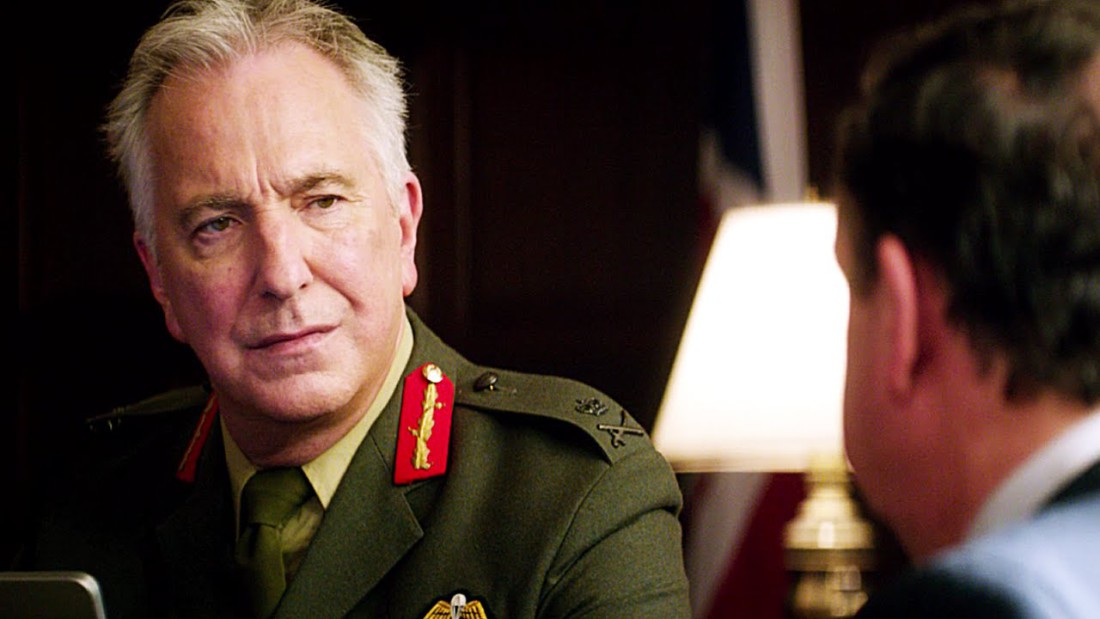
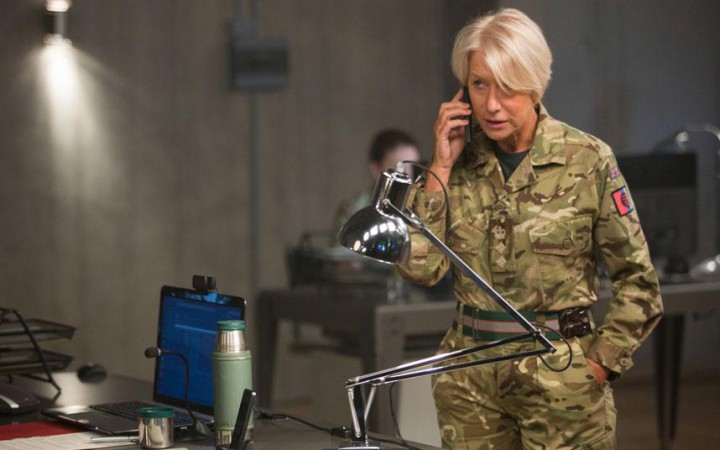
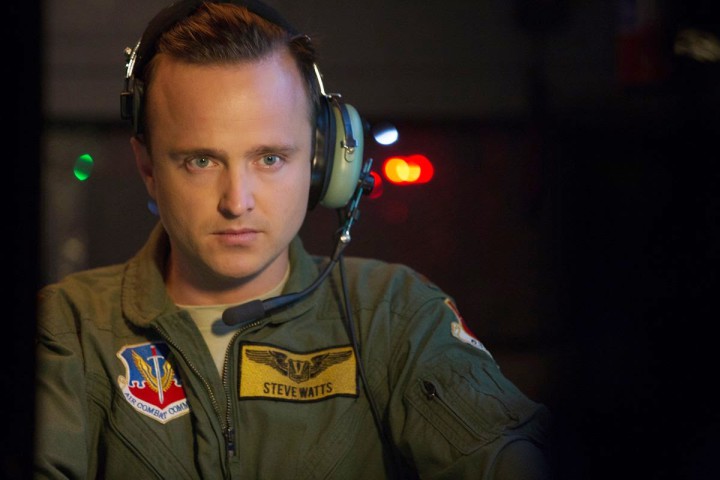
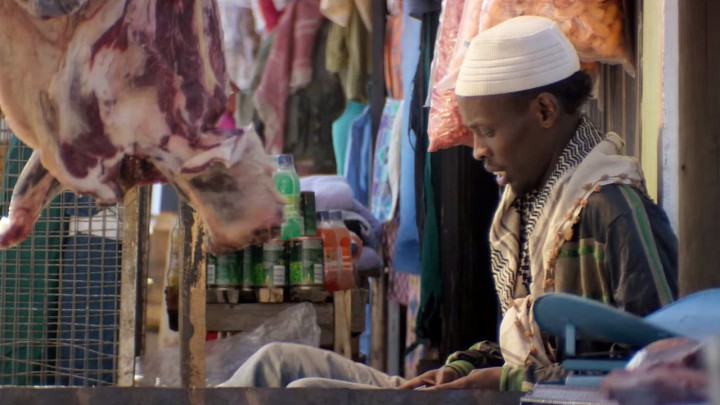
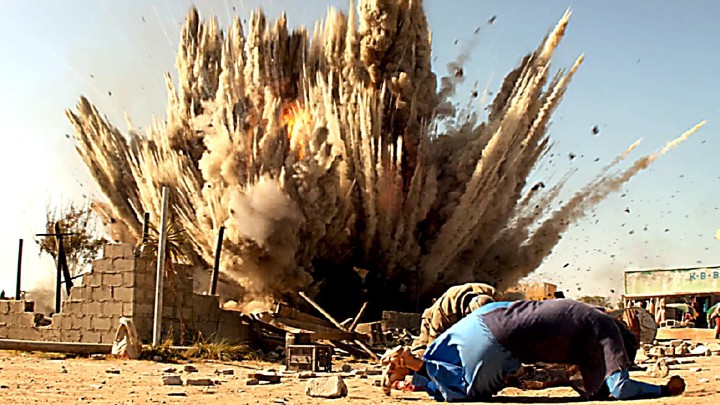
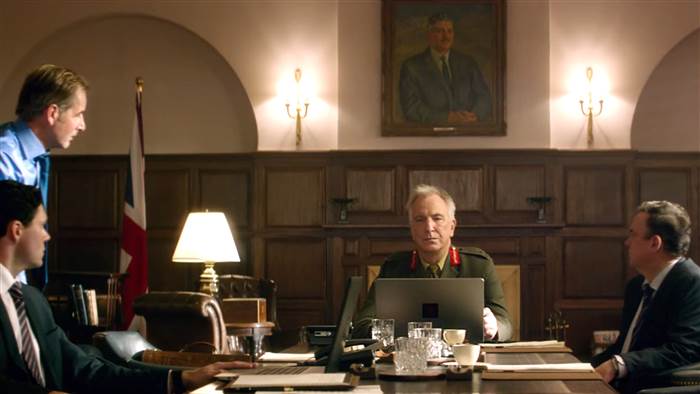
Very interested in this. How would you compare it to Good Kill?
Superior in most ways, esp. in the cast.